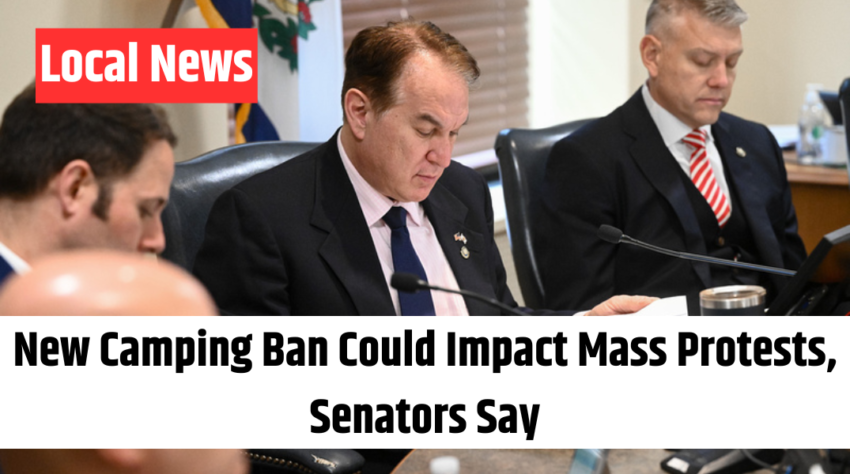The West Virginia Senate is set to vote on a proposed statewide ban on camping in public spaces. While the measure primarily aims to address homelessness, some lawmakers believe it could also be used to regulate large-scale protests.
Senate Judiciary Chairman Mike Stuart, R-Kanawha, emphasized that the bill is not exclusively about the homeless crisis, citing recent demonstrations in New York.
“This law would also apply to certain violent protests where people set up encampments, start fires, and disrupt cities,” Stuart said.
Senator Tom Willis, R-Berkeley, echoed this perspective, referencing past incidents across the U.S. where protest groups occupied public areas. He argued that the bill could serve as a proactive measure to prevent similar situations in West Virginia.
Also Read – New Data Center Bill in WV Contains Benefits for Coal Sector
“This legislation gives officials a tool to protect businesses and public order,” Willis said.
After two hours of debate, the Senate Judiciary Committee advanced the bill, which had previously passed in the House of Delegates. However, amendments to the legislation mean both chambers will need to negotiate a final version before it becomes law.
House Bill 2382 aims to regulate the unauthorized use of public spaces for camping and storage, rather than outright banning sleeping outdoors. It seeks to maintain public order while ensuring health and safety.
The penalties outlined in the bill range from warnings to fines up to $500, as well as possible jail time of up to 30 days. However, an amendment introduced by Senator Eric Tarr, R-Putnam, includes provisions to offer transportation to alternative shelters, addiction treatment centers, or mental health services instead of immediate punishment.
Homelessness has become a pressing issue for several West Virginia cities, including Morgantown, Clarksburg, Princeton, and Bluefield.
Mark Phillips, president of Catholic Charities West Virginia, acknowledged that the bill allows local governments to designate exempt areas for the homeless. However, he expressed concern about the bill’s practical impact, noting that shelters in some areas, like Morgantown, are already at full capacity.
“If there’s nowhere for people to go, they’ll face fines or imprisonment, only to end up back in the same situation,” Phillips said. He urged lawmakers to prioritize social services and housing solutions over punitive measures.
Senator Patricia Rucker, R-Jefferson, questioned the fairness of fining individuals who already struggle with basic needs.
“We’re asking people who can’t afford housing or food to pay a fine,” Rucker said. She ultimately voted against the bill, arguing that criminalizing homelessness is not the right approach.
Meanwhile, Senator Scott Fuller, R-Wayne, defended the bill, stating that homeless encampments can make downtown areas feel unsafe for businesses and families.
“This isn’t just about people sleeping outside. It’s about protecting communities,” Fuller said.
As the bill moves toward a final decision, it continues to spark debate on balancing public order with the need for social support .
